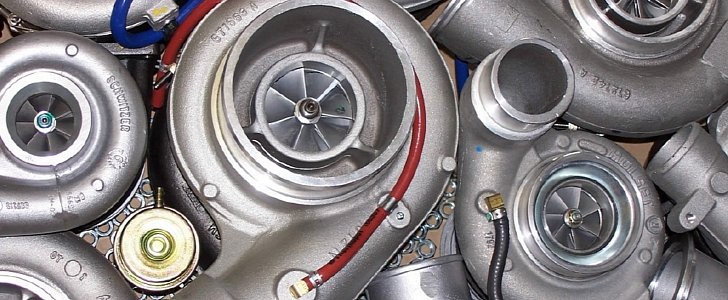Engines For Africa Offers Motors You Can Trust Fund
A Total Guide to Choosing the Right Engine for Your Job
Selecting the proper engine for your job is a critical decision that can significantly impact its overall success. It is important to meticulously define your task needs, review performance needs, and take into consideration user-friendliness along with other vital factors. In addition, understanding the neighborhood support offered and looking at expense implications can better fine-tune your option. Each of these aspects plays a pivotal function in ensuring that your chosen engine not only fulfills instant objectives yet also straightens with long-term goals. As we discover these factors to consider, you might find that the subtleties of each element reveal even more than initially anticipated.
Define Your Task Requirements
Specifying your project needs is an important action in selecting the ideal engine for effective application. An extensive understanding of your job's goals will guide you in identifying the capabilities and attributes called for from an engine. Begin by detailing the range of your project, including the wanted performance, target audience, and the details outcomes you aim to attain.
Next, take into consideration the technical needs that align with your job objectives. This includes examining the compatibility of the engine with existing systems, as well as the programs languages and structures that will certainly be made use of. Furthermore, examine the level of scalability required to suit future growth or changes in demand.
Budget restrictions additionally play a vital role in defining your job needs. Develop a clear economic structure to guide your decision-making procedure, making sure that the engine selected fits within your spending plan while giving the needed functionality.
Evaluate Efficiency Requirements

Engines that sustain straight scaling are typically more suitable for larger applications. Additionally, review the engine's efficiency under different conditions, such as peak use situations, to ensure it meets your integrity criteria.
Think About Ease of Use
While technological specs are important, the ease of usage of an engine can dramatically affect the advancement process and overall task success. An user-friendly interface, clear documents, and structured workflows can considerably decrease the understanding contour for developers, allowing them to concentrate on creativity and analytic as opposed to facing complicated tools.
When evaluating an engine's simplicity of use, take into consideration the onboarding experience. A well-structured introduction, full with tutorials and sample tasks, can help with a smoother change for new customers. Furthermore, the quality and comprehensiveness of the engine's paperwork play a vital duty; extensive overviews and API references can encourage developers to repair and execute attributes efficiently.
An engine that allows for easy alterations can be more user-friendly, as developers can tailor it to fit their specific needs without extensive inconvenience. Eventually, selecting an engine that prioritizes convenience of usage can lead to a much more satisfying and efficient development experience.
Assess Area and Assistance
The stamina of an engine's community and support network can substantially affect a designer's experience and success. A lively community frequently suggests a wealth of common expertise, sources, and fixing assistance that can boost your task's advancement process. When analyzing an engine, think about the size and task degree of its community. Bigger neighborhoods generally offer extra online forums, tutorials, and third-party plugins, enabling programmers to discover solutions a lot more effectively.
Moreover, review the availability of main support networks. Reputable documents, responsive consumer support, and routine updates are important for resolving technical problems and maintaining your project on course. Engines For Africa. Active neighborhoods additionally promote cooperation, providing chances for networking and feedback, which can be vital, particularly click site for independent designers or tiny teams
Additionally, check out the visibility of community-run events, such as hackathons or meetups. These celebrations can enrich your understanding of the engine while connecting you with knowledgeable customers and potential collaborators. In recap, a durable neighborhood and support system not just streamline advancement but likewise develop a setting for learning and advancement, ultimately improving the probability of your task's success.
Contrast Price and Licensing Alternatives
Spending plan factors to consider play an essential function in selecting the best great site engine for your project, as the cost and licensing alternatives can dramatically influence both temporary expenditures and long-lasting feasibility. Engines For Africa. Different engines provide varying pricing frameworks, which can consist of one-time purchase costs, registration designs, or revenue-sharing contracts based on your project's earnings

Licensing options likewise differ significantly. Some engines are open-source, offering adaptability and community-driven support, while others may require proprietary licenses that limit usage and distribution. Understanding the effects of each licensing design is essential, as it affects possession civil liberties, future scalability, and possible lawful responsibilities.
Conclusion
To conclude, picking the proper engine for a project necessitates an extensive examination of defined task requirements, performance needs, simplicity of usage, neighborhood support, and price considerations. By methodically attending to these critical variables, decision-makers can ensure alignment with both existing and future project demands. A knowledgeable choice ultimately enhances the possibility of project success, allowing efficient resource allocation and making the most of possible results within the defined financial restraints.
Selecting the appropriate engine for pop over to these guys your job is a vital decision that can substantially impact its total success.Defining your project requires is a crucial step in picking the appropriate engine for successful execution. A comprehensive understanding of your job's goals will certainly guide you in determining the capabilities and functions needed from an engine.As soon as you have a clear understanding of your task needs, the next step is to examine the efficiency needs of the engine.In conclusion, selecting the suitable engine for a job demands a comprehensive examination of specified task demands, efficiency needs, ease of use, community support, and cost considerations.